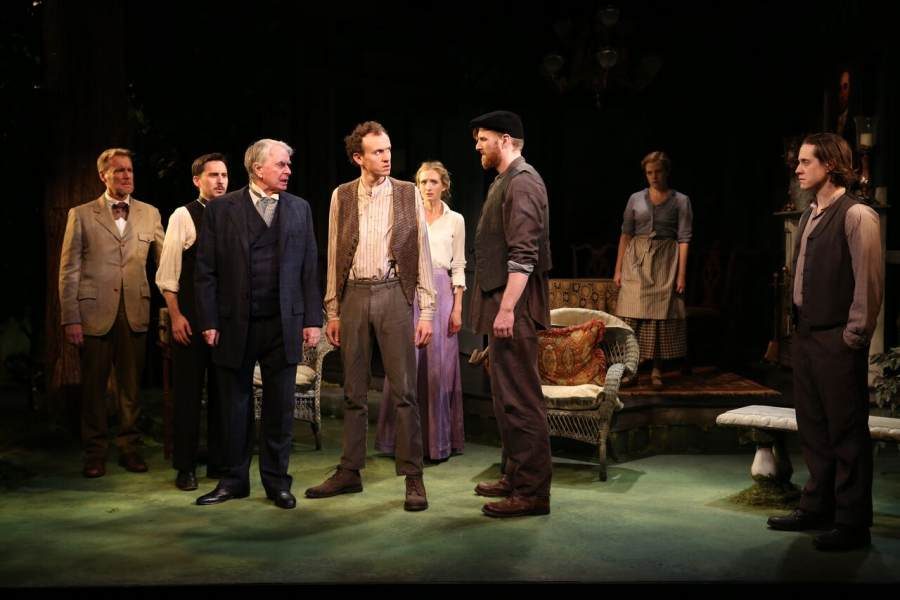

Brian Friel’s oft-used fictional town of Ballybeg, Co. Donegal, marks a Chekhovian outline as well as the path to Friel’s own hopscotch bearings either side of the nearby Irish border. The Home Place, the last of his full-length original plays, is set in the year 1878, 40-odd years before partition, conspicuous by the ascendance of the Irish Home Rule movement and the murder of local landowner Lord Lifford (based on the real murder of William Clements, 3rd Earl of Leitrim in that same year). Landlord Christopher Gore (John Windsor-Cunningham) and his son David (Ed Malone), natives of Kent, inhabit The Lodge. Both harbor desires for housekeeper Margaret (Rachel Pickup), who straddles the divide between her people, in part personified by her father Clement’s (Robert Langdon Lloyd) disheveled pride in homegrown ability (“Tom Moore is the finest singer we have, the voice of our nation...”) - and her English employers, one of whom she is in love with. While guileless dreamer David’s affections for Margaret are reciprocated, Christopher is preoccupied and burdened by his guests, cousin and ethnologist Dr. Richard Gore (Christopher Randolph) and his assistant Perkins (Stephen Pilkington).
Dr. Richard has stopped by to take measurements of the Irish locals in the belief that racial character traits (“...portraits of a distinctive ethnic group”), perceived by him as adverse, will emerge from his findings. His prejudice and treatment of the townsfolk fires up deep-seated resentment for the ruling English class. Reactionary hostilities led by local rebel Con Doherty (Johnny Hopkins) abound. Adrift and out of touch with his beloved estate - the home place in Kent, his Ballybeg tenants and beautiful, dependable Margaret, Christopher buckles under his conscience and heavy heart.
The Irish Repertory Theatre's Charlotte Moore has put together a disproportionate ensemble, but gracefully assigns the actors to their positions. There are some commendable performances, particularly from the older members of the cast who add substance to the perception of a conceited class. At times, Moore's directorial grasp slips. What should be the play’s dramatic pinnacle, in which the local acrimony hastens during Dr. Richard’s cranial measuring, collapses under chaos; a missed opportunity. At the play’s close, bathing in the light while listening to a distant choir, Pickup as Margaret is mesmerizing, illustrating what is absent from prior, pivotal scenes - controlling the moment. The Home Place is nevertheless an important play that digs deep into the blight of the soul that scurries within oppressive power. Friel’s pen gives Christopher Gore such self-effacing decency that when the time comes for him to reveal his passion and anguish, he is shackled to comportment. When he says to Margaret, “You’re an exile here too," his constraint ransacks the truth somehow. Elsewhere, cogency prevails in the congenial discussions that are no less arresting than their dramatic counterparts.